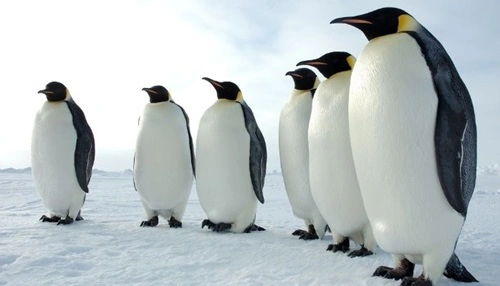Yes, in most cases, it is illegal to own a penguin in the United States. Penguins are protected under various international, federal, and state laws due to their status as wild animals and their need for specialized care and habitats. Ownership typically requires permits and adherence to strict legal and ethical guidelines.
Legal Protections for Penguins
1. International Protections
- Penguins are protected under the Convention on International Trade in Endangered Species of Wild Fauna and Flora (CITES). CITES regulates the trade of wild animals to ensure their survival is not threatened. Importing or owning a penguin without proper authorization is a violation of this treaty.
2. U.S. Federal Laws
- The Endangered Species Act (ESA) protects certain species of penguins that are considered endangered or threatened. It is illegal to import, sell, or own these penguins without permits issued by the U.S. Fish and Wildlife Service (FWS).
- The Marine Mammal Protection Act (MMPA) and other federal regulations also extend to penguin habitats, prohibiting activities that might harm their populations.
3. State and Local Laws
- Individual states have laws regulating the ownership of exotic animals, including penguins. In most states, private ownership of penguins is prohibited without permits, and some states ban it outright.
Why Is Owning a Penguin Illegal?
- Welfare and Habitat Concerns
- Penguins require highly specialized environments to survive. They need cold climates, specific diets (such as fresh fish), and access to water for swimming and diving. Most private individuals cannot provide these conditions.
- Improper care can lead to serious health issues for penguins, making private ownership ethically questionable.
- Conservation Efforts
- Many penguin species are vulnerable due to climate change, habitat destruction, and overfishing. Strict regulations help ensure that wild populations remain protected and are not exploited for private ownership.
- Public Safety Risks
- Penguins, while not typically aggressive, are still wild animals. Owning one without proper training and facilities can pose risks to both the owner and the animal.
Permits and Exceptions
- Zoos and Aquariums
- Accredited institutions such as zoos and aquariums may own and care for penguins under strict regulatory oversight. These organizations often work on conservation, research, and education programs.
- Scientific Research
- Universities and research institutions may be granted permits to study penguins for conservation and scientific purposes. These permits are issued by the FWS or similar authorities.
- Entertainment Industry
- Penguins used in films or documentaries may be temporarily housed by licensed professionals, but this is not considered private ownership.
Consequences of Illegal Ownership
- Fines and Penalties
- Violating federal or state laws by owning a penguin without a permit can lead to hefty fines, ranging from thousands to tens of thousands of dollars.
- Animal Seizure
- Authorities may confiscate the penguin and transfer it to a suitable facility, such as a zoo or sanctuary.
- Criminal Charges
- Depending on the circumstances, illegal ownership could result in misdemeanor or felony charges, leading to further legal consequences.
Alternatives to Owning a Penguin
- Visit Accredited Zoos or Aquariums
- Many facilities allow the public to observe or even interact with penguins in controlled environments, supporting conservation efforts through ticket sales and donations.
- Adopt a Penguin Symbolically
- Several organizations offer symbolic adoption programs, where you can financially support penguin conservation without owning one.
- Volunteer for Conservation Projects
- Participate in conservation or research programs to help protect penguins in the wild.
Common FAQs
Q1. Can I legally buy a penguin?
Ans: No, purchasing a penguin is illegal without proper permits, which are typically granted only to zoos, aquariums, or research institutions.
Q2. How much does it cost to care for a penguin?
Ans: Caring for a penguin requires significant resources, including refrigeration units, specialized enclosures, and a constant supply of fresh fish, costing thousands of dollars annually.
Q3. Are there any penguin species I can own legally?
Ans: No, all penguin species are protected by international and federal laws, making private ownership nearly impossible.
Q4. What happens if I find a penguin in the wild?
Ans: Penguins in the wild should be left undisturbed. If you encounter a penguin outside its natural habitat, contact local wildlife authorities immediately.
Q5. Can I volunteer to work with penguins?
Ans: Yes, many zoos, aquariums, and conservation organizations offer volunteer programs where you can assist with penguin care or habitat maintenance.
Q6. What permits are needed to own a penguin?
Ans: Permits are issued by the U.S. Fish and Wildlife Service and are generally only granted for conservation, research, or educational purposes.
Conclusion
Owning a penguin in the U.S. is illegal in almost all cases due to strict federal and international protections. These laws are in place to ensure the well-being of penguins and the preservation of their species. For those interested in penguins, supporting conservation efforts or visiting accredited facilities is a legal and ethical alternative.


